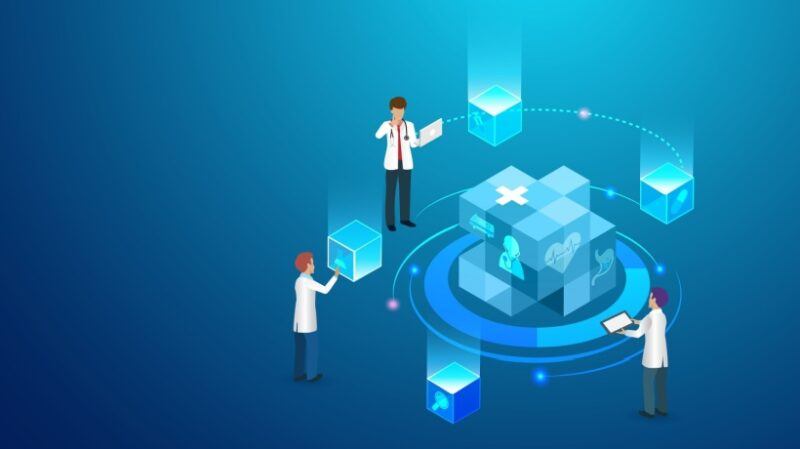[ad_1]

Training For Better Healthcare
Medical professionals require years of experience and specialized training. It is a requirement of the job to learn via work experience. But how can you teach employees to overcome challenges at work without putting patients in danger? Is it possible to improve overall compliance and customize training for every member of your medical staff? Let’s examine some of the most evident benefits of a healthcare Learning Management System (LMS) for hospital staff members.
What Is The Healthcare LMS?
Healthcare Learning Management Systems are healthcare training platforms that assist medical professionals in managing their online learning initiatives without unduly detracting from their primary duty (i.e., patient care). Doctors and other medical professionals can use the training modules that instructors of the program create for internal use. With the best Learning Management Systems for healthcare, you can:
- Provide on-demand access to training materials and online courses.
- Use quizzes and tests to gauge your learners’ level of understanding.
- Track the growth and achievement of your learners.
- Examine the impact of training on employees’ compliance and/or productivity.
- Give certificates and accreditations to your employees.
Benefits Of Healthcare LMS For Hospital Staff
The dynamic and ever-changing regulatory and compliance landscape of today makes a healthcare LMS crucial. Healthcare professionals have more learning requirements as a result of the disruptions caused by technology and digital innovations. The medical devices market is experiencing constant innovation and more complex sales cycles.
Additionally, research shows that every 73 days, medical knowledge doubles! There is increasing pressure on clinicians and practitioners to stay up to date with the rapid advancements in medical knowledge. As a result, it becomes essential to spread training and certifications, and to stay up to date with the quickly evolving technologies and procedures. Some of the major advantages of using LMSs for healthcare training to enhance the knowledge of medical professionals are as follows:
- Help busy healthcare professionals learn anytime and anywhere they choose by implementing self-paced and on-demand learning by using a healthcare LMS.
- Enhance learning outcomes by increasing learner engagement and lowering cognitive load by utilizing modern features like gamification, blended learning support, and a high degree of customization and personalization.
- By hosting, delivering, and managing compliance training from a single platform, you can automate compliance management and foster a culture of compliance.
- Simplify SOP training, give personnel and employees pertinent training, and prevent workplace misconduct and carelessness for those working in labs and on medication formulations, among other areas.
- Organize and centralize the administration of training content with the help of an LMS for healthcare.
- Using data-driven insights, track the progress of employee learning, evaluate the efficacy of learning, and determine the need for and suitability of training resources.
- Facilitate continuing education, improve medical proficiency, and raise the bar on important competencies such as professionalism, teamwork, and interpersonal communication by making learning resources and guided courses more widely available and highly customizable.
- Accommodates various learning modalities and incorporate a broad range of educational and training opportunities.
- Encourage employee involvement by offering training and career development opportunities.
- Enable strong leadership development through training in both soft and hard skills.
- Provide the necessary power skill development to adapt to the modern workplace.
Use Cases For Healthcare LMSs
The healthcare LMS offers many applications beyond compliance training that enhance patient outcomes. Below are some of them:
Onboarding
Healthcare platforms can be utilized to streamline the onboarding process in light of the varying schedules of healthcare personnel. With the help of LMS platforms, new resources can be effectively onboarded, and tailored onboarding experiences can be provided, resulting in increased employee engagement.
Clinical Training
Healthcare LMS platforms enable organizations to offer training programs that enhance patient outcomes while assisting medical professionals in filling in skill gaps and learning new standards and procedures. For instance, doctors and staff can receive training on new standards and procedures or how to use devices through an LMS platform.
Training On Medical Products And Devices
Healthcare LMSs can be used to address the learning and training needs of sellers and other customer-facing teams, whereas clinical education is primarily focused on healthcare professionals. The Learning Management System can be a useful tool for teaching learners about medical devices and products, like artificial cardiac pacemakers, and assisting them in appreciating their benefits. Additionally, LMS platforms can be used to distribute training on medical devices and product evaluation, which can help businesses increase sales and enhance customer satisfaction.
Conclusion
In summary, healthcare Learning Management System adoption is essential for meeting the changing needs of medical knowledge and ensuring ongoing professional development for medical personnel. Accessible and adaptable learning solutions are necessary given the quick speed of medical innovation, and LMS platforms easily satisfy this requirement. Healthcare LMSs promote a culture of continuous learning by offering personalized learning experiences, on-demand access, and progress tracking. These LMS features not only help with compliance but also foster continuing education.
The adaptability of LMSs for healthcare training helps to improve patient outcomes, increase employee engagement, and stay ahead in the ever-changing healthcare environment, from onboarding to clinical training and product education. Adopting an LMS is a strategic necessity for the future of patient care and healthcare education, not just a personal preference.
Editor’s Note: Check out our directory to find, choose, and compare eLearning Industry’s Top LMS Software.
[ad_2]
Source link

